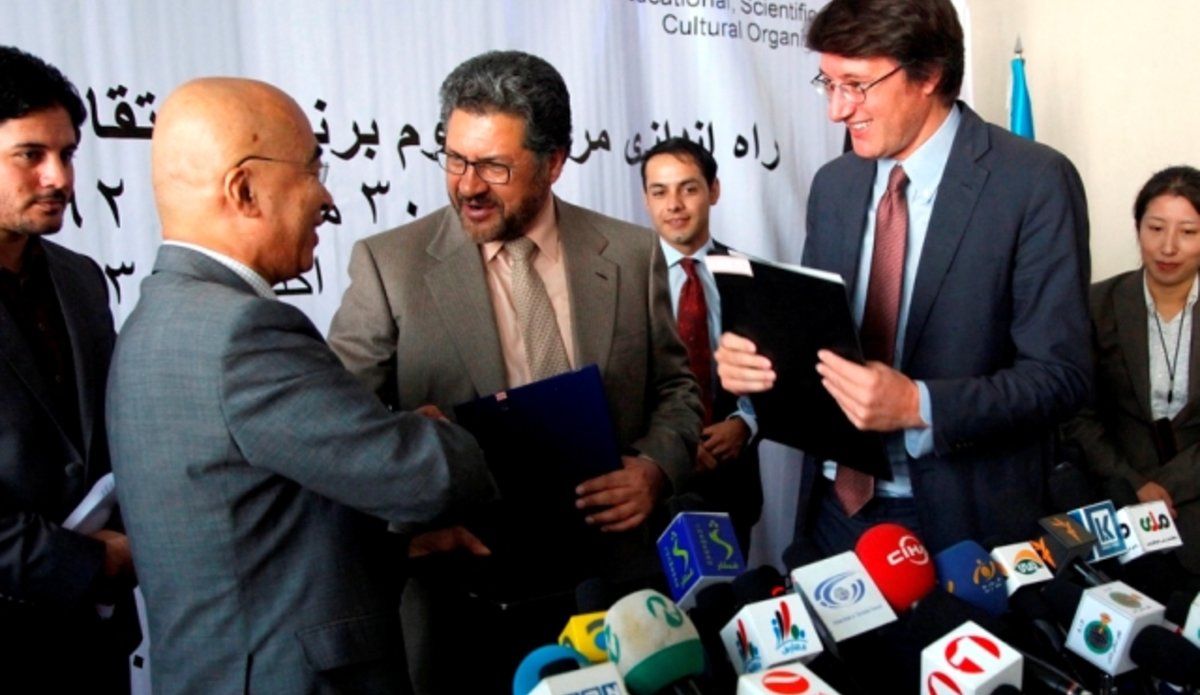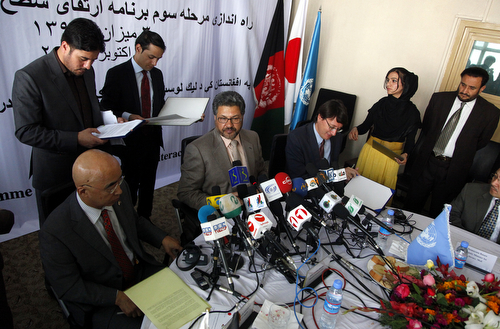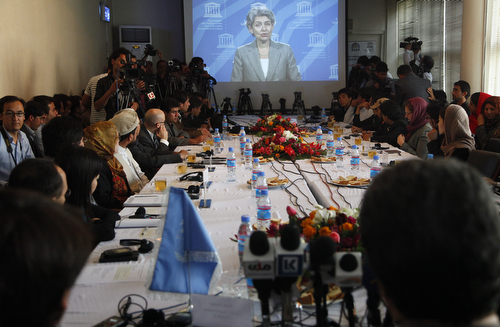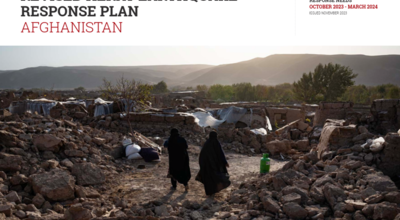Japan provides $20 million to UN-supported scheme to improve literacy in Afghanistan
KABUL - The Government of Japan signed an agreement on Tuesday to provide $20 million to a United Nations-supported programme to improve literacy in Afghanistan, which has one of the lowest literacy rates in the world.
The third phase of the Enhancement of Literacy in Afghanistan (ELA) programme, which will be implemented by the Afghan Ministry of Education (MoE) with technical support from the UN Educational, Scientific and Cultural Organization (UNESCO), aims to strengthen the provision of literacy in Afghanistan with an emphasis on skills development, according to a joint news release.
“This programme will substantially contribute to achieving the target set by the Afghan Government to increase the level of adult literacy from the current figure of 36 per cent to 59 per cent by 2020,” said the Afghan Minister of Education, Farooq Wardak, at the signing ceremony in the capital, Kabul.
UNESCO’s Country Representative, Paolo Fontani, and the Ambassador of Japan, Hiroshi Takahashi, also addressed the event before signing the agreement together with Minister Wardak.
A three-year national literacy plan launched last year estimated that Afghanistan’s adult literacy rate (15 and above age-group) is 34 per cent, with 18 per cent for women and 50 per cent for men.
“In rural areas where some 74 per cent of all Afghans reside the situation is more acute: an estimated 90 per cent of women and 63 per cent of men cannot read, write or compute,” said the National Literacy Action Plan, which aims to reduce Afghanistan’s illiteracy rate by at least half “with special focus on the most vulnerable and disadvantaged in Afghan society.”
Since 2008, two phases of the ELA programme have been implemented in 15 provinces of Afghanistan at a total cost of $50 million. The programme, during its first two phases, provided basic literacy and numeracy with life skills training to over 600,000 adults, 60 per cent of them being women, said the joint news release of MoE, UNESCO and the Government of Japan.
Despite some four million Afghans becoming literate since 2002, Afghanistan still has one of the highest illiteracy rates in the world with about nine million illiterate adults, according to the Afghan Ministry of Education.
Minister Wardak told the Kabul event that the Afghan Government was committed to leave no Afghan citizen illiterate. “Our struggle is to increase the literacy rate by 60 per cent during the next seven years in Afghanistan,” he said, highlighting that education was integral to Afghanistan’s development and prosperity.
In his comments, the country representative of UNESCO, Paolo Fontani said that by the end of the third phase of the ELA programme, 15 per cent of the illiterate people of Afghanistan would be reached by 12,500 educators.
“This is a wealth for the country. These are the people who are going to stay and continue their work for coming years in Afghanistan,” said Mr. Fontani.
Highlighting a new component of “skill development” added into the third phase of the ELA programme, the UNESCO Representative said, “The new phase will actually focus on the idea of building skills which can be used for the people to enter the labour market. It is also a way to link the idea of non-formal education with formal education.”
In his remarks, Ambassador Takahashi said that his government expects the Government of Afghanistan to exercise “full responsibility and strong leadership” enabling the ELA programme to be more sustainable, and UNESCO to ensure “quality and steadfast” implementation of the programme.
“The development of human resources is one of the largest pillars of our assistance towards this country, and literacy is an essential key to social development and inclusion,” said Mr. Takahashi. “We will continue supporting Afghanistan’s endeavours for the people of Afghanistan.”
According to Minister Wardak, the Government of Japan has so far provided financial support to construct some 1,000 classrooms in Kabul. He added that another 1,000 classrooms will be constructed with Japan’s support in three Afghan provinces – Ghor, Dai Kundi and Bamyan.
On the occasion, a video message of the UNESCO Director-General, Irina Bokova, stressed the importance of the ELA programme in increasing literacy.
“This programme is guided by a single, powerful conviction that we all share, the conviction that literacy is a basic human right and a force for human dignity, that in societies that are transforming literacy is a foundation for sustainability. In a more connected world, in knowledge societies, illiteracy equates with poverty and exclusion,” said Ms. Bokova.
Related article:
- Afghan authorities tackle country's high illiteracy rate
 UN
UN










